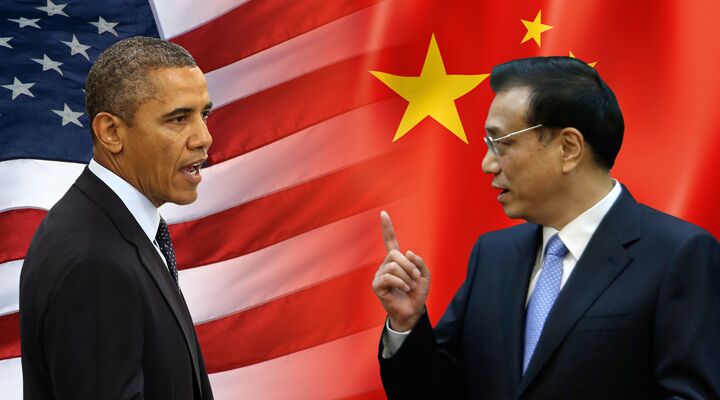
How the U.S. Government Shutdown Is Affecting Asia
We Americans tend not to see past our own noses. Right now, the government shutdown is big news. Naturally, coverage is focused on domestic concerns, such as the completely unnecessary park closures that expose the childishness and vindictive spirit of this administration.
However, there are larger ripple effects of this closure—even global ramifications—we need to pay attention to.
After all, if Washington is internally paralyzed with inaction, how can it fulfill its international obligations as the world’s leading power? This is a question many leaders around the world are asking—some with concern, others with glee.
As Stratfor’s George Friedman wrote, if the nation “is both losing its internal cohesion and the capacity to govern … it would mean the United States would not be able to act in global affairs, and that in turn would mean that the international system would undergo a profound change” (October 8).
Consider what the shutdown means for Asia, particularly China.
For years the balance of power in Asia has been shifting. American influence has faded; China’s has blossomed. America’s nervous Asian allies are increasingly reevaluating their dependence on the U.S. and looking for alternatives.
China is doing all it can to step into that gap. It is positioning itself, quite successfully, as the powerhouse of Asia. And it views Washington’s childish infighting as a golden opportunity.
Because of the government stoppage, President Obama has canceled visits with four Asian countries and missed two regional summits. In addition, an American-Japanese military exercise scheduled for later this month in Japan was nixed. (A spokesman for Japan’s defense ministry said, “If cancellations continue on other events, the impact would be substantial.”)
This all plays beautifully into China’s hands.
It validates the concerns of those who fear America’s shrinking power, particularly within Asia. As Joseph de Courcy, reporting on this trend, wrote, “The credibility of the U.S.’s pivot to Asia, like the credibility of its Middle East policies, is being openly questioned. Even the economic element of the U.S.’s Asia pivot is looking unconvincing” (Courcy’s Intelligence Brief, October 9).
As American dependability looks shakier, China looks like the picture of stability. After President Obama dropped out from the Asian-Pacific Economic Cooperation (apec) summit and the East Asia Summit, Carl Thayer, professor at the Australian Defense Force Academy, said, “For countries not closely allied with the U.S., Obama’s no-show will reinforce their policy of bandwagoning with China.”
The timing of these events was even more damaging for having occurred alongside another stunning demonstration of America’s weakness: its desperate acceptance of Russia’s highly dubious and calculated offer to take care of Syria’s chemical weapons. Here the United States deferred to another Asian power in order to avoid having to take action internationally.
Meanwhile, as President Obama conspicuously canceled his trip to Asia, China was active in his absence.
As Courcy reported, the Chinese president, Xi Jinping, announced $30 billion worth of deals with Indonesia. He declared a “comprehensive strategic partnership” with Malaysia, including enhanced military ties. The Chinese premier, Li Keqiang, publicly noted the success of the “golden decade” of China’s partnership with the Association of Southeast Asian Nations (asean)—during which bilateral trade has increased fivefold, from $80 billion to $400 billion. He announced that China’s aim was to increase that number to $1 trillion by 2020.
Then, for good measure, Beijing took a warning shot at the U.S. On Tuesday, China’s vice foreign minister, Zhu Guangyao, said flatly that “the clock is ticking,” and the U.S. had better resolve its political disputes in order to prevent a debt default. Why? It’s America’s responsibility “to ensure the safety of Chinese investments in the United States,” he said. Remember, China is America’s biggest creditor—it is estimated to hold at least $1.3 trillion in U.S. bonds. It possesses substantially more leverage over the U.S. than the other way around. And now the U.S. is simply handing China more reasons to gloat.
From its position of weakness, America’s strategy to contain China is essentially built around its alliance with Japan. More and more, the U.S. is encouraging Japan to break from the pacifist constitution—the constitution that America and its allies created. To the consternation of neighboring nations that still remember Japan’s brutal warmaking in World War ii (and which the U.S. has apparently long forgotten), Washington views a rearmed Japan—possessing first-strike capacity—as its best shot at keeping China in check.
This is a fundamentally flawed strategy. In the medium-to-long term, it will do nothing to suppress China’s rise. Ultimately it will actually serve to increase the power of what is soon to emerge as a heavily militarized, united Asian superpower.
The shift of power away from the U.S. and toward China isn’t merely an outgrowth of the recent U.S. government closure—this trend has been unfolding for years. The shutdown has simply highlighted it and, to a degree yet to be seen, exacerbated it.
Now, the culmination of this trend—an Asia that operates independently of America’s influence, and is likely dominated by China (and Russia)—looks increasingly inevitable. It appears America has been checkmated.
This is exactly as biblical prophecy said it would be, and which the Trumpet and its forerunner, the Plain Truth, has proclaimed for several decades. You can read our booklet Russia and China in Prophecy for proof.
The implications of that fact—that these events are taking place in precise accordance with divine proclamation—are truly worth investigating. These biblically prophesied events are hugely important—and they’re happening right in front of our noses.
